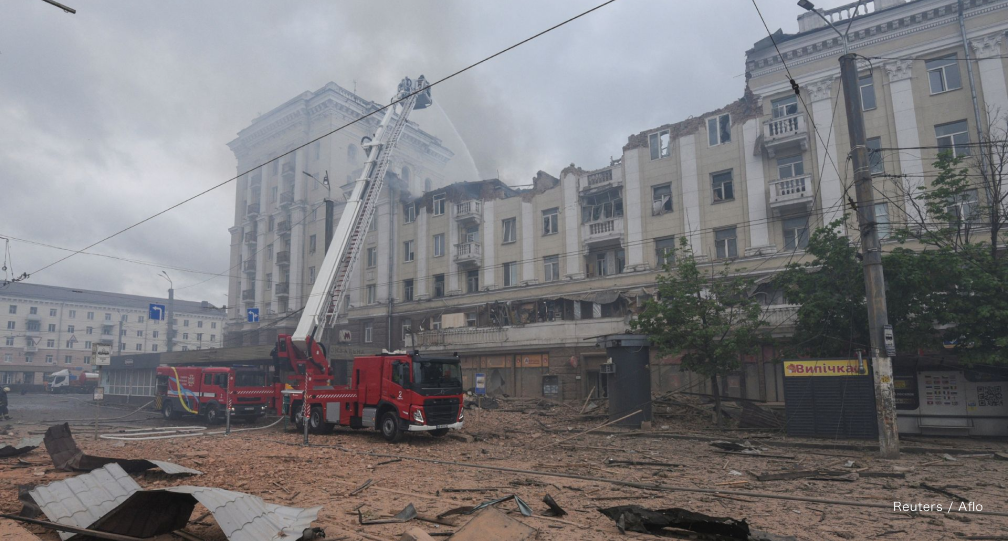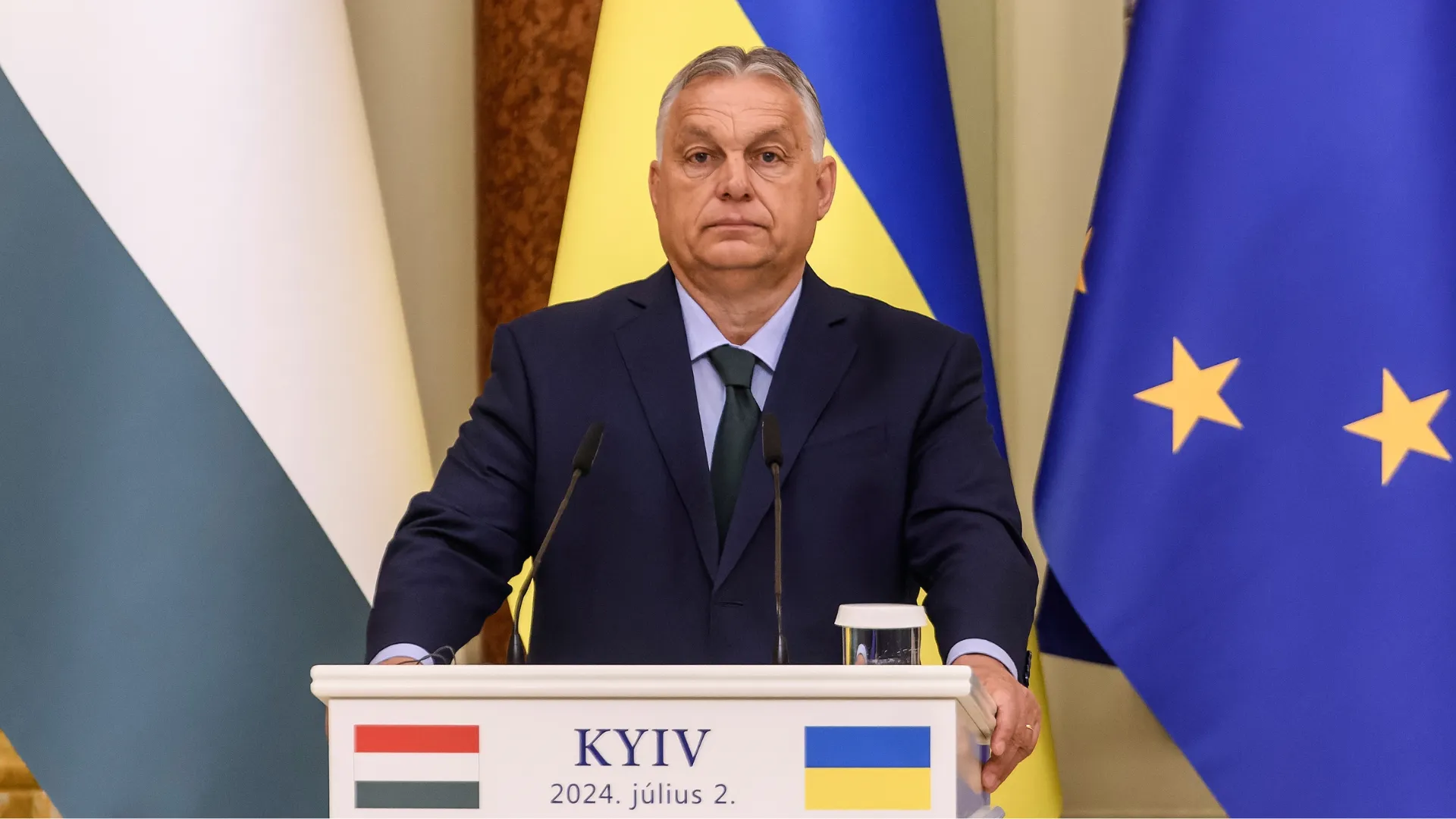Lessons from Ukraine and Gaza on humanitarian law

And yet, there has been little debate on how the acts in the Ukraine war and Gaza conflict have been undermining humanitarian law, especially from the perspective of security studies.
This is because international law, which humanitarian law falls under, and international politics, which security studies fall under, are highly specialized, making it difficult to rely on the findings of either. As Matthew Evangelista of Cornell University, in New York, and others have long pointed out, the lack of an international legal perspective has been recognized as one of the weaknesses of security studies.
Humanitarian law vs military necessity
It is important to note that humanitarian law, namely the Law of the Hague that governs the conduct of hostilities, was originally drawn up by military officers. Both diplomats and military experts contributed to the drafting and negotiation of this body of law in the Hague Conventions of 1899 and 1907, creating a framework that reflects the practical realities of armed conflict, rather than theoretical ideals.
The practical approach has helped ensure that humanitarian law is grounded in the realities faced by those engaged in war.
A fundamental aspect of humanitarian law is the balance between minimizing harm to civilians while achieving military objectives. To effectively argue for military objectives, one must consider military rationality — what actions are necessary for winning war on the battlefield. Methods and means of warfare with minimal military benefit are often regulated based on humanitarian considerations.
For example, weapons that inflict unnecessary suffering on combatants, such as dum-dum bullets, are regulated. Additionally, international law prohibits targeting civilians and civilian objects that are not used for military purposes.
Balancing humanitarian considerations with military necessity is complex. It requires that attacks on military objectives do not cause excessive collateral damage to civilians. While civilian casualties may not be completely avoided, they must be weighed against the benefits gained from such attacks.
Violations of humanitarian law are more likely in conflicts where military strategies are not critically examined. Therefore, understanding military rationality is crucial to ensuring adherence to humanitarian law.
Airstrikes on Ukraine
In this context, Russia is clearly responsible for many violations of humanitarian law in the war in Ukraine.
Russian President Vladimir Putin initially invaded Ukraine from three directions to disarm the country, but faced fierce resistance and setbacks. The reasons for this are many, including that Russian missile attacks often targeted Ukrainian cities populated with civilians rather than front-line troops.
Robert Pape of the University of Chicago has argued that for airstrikes to alter the enemy’s behavior, they must target military forces, rather than being retaliatory strikes on cities. Putin’s strategy has focused on bombing Ukrainian cities rather than military objectives, aiming to break Ukraine’s resolve.
This approach is ineffective and has not weakened Ukraine’s determination but instead caused significant civilian casualties and damage to civilian objects.
One of the major reasons why Russia has committed numerous violations of humanitarian law in Ukraine is that Putin believes strategic bombing of cities is an indispensable means for disarming the country, based on Russia’s concept of “non-nuclear deterrence,” part of its military doctrine.
Therefore, weighing military necessity against humanitarian considerations is missing in this calculation. This is why Russian troops have frequently violated jus in bello (the conduct of parties in an armed conflict) in a war that has been undertaken in violation of jus ad bellum (the criteria for determining whether it is just to go to war).
Proportionality in Gaza
The Israeli invasion of Gaza is a more complex issue. Israel’s military actions, which it claims are being conducted in response to last October’s attack by Hamas, involve the contentious question of whether it is legally permissible under international law to exercise self-defense against a nonstate actor like Hamas. This is similar to the debate that occurred in 2014 when the United States conducted military actions against the Islamic State group in Syria.
Even if Israel’s actions were initially deemed justified under jus ad bellum, the legality of these actions once war has begun — jus in bello — must also be considered. The heavy damage inflicted on civilians and civilian objects, including hospitals, raises concerns about whether Israel’s operations adhere to the principles of distinction and proportionality.
Israel may argue that its actions are necessary to neutralize Hamas fighters, but the significant civilian harm caused raises questions about the legality of the operation under these principles. The onus of proving the legality and legitimacy of its attacks is on Israel, but a more fundamental issue is the relationship between military actions and political goals.
For Israeli Prime Minister Benjamin Netanyahu, the conditions for peace are the destruction of Hamas and demilitarization of Gaza. But it is questionable whether a large-scale ground invasion coupled with airstrikes is appropriate or effective to achieve these goals. Given Gaza’s dense population and small size, a full-scale military operation or invasion makes it extremely challenging to avoid civilian casualties.
The advent of the era of lethal firepower’s diffusion makes it even harder to meet Netanyahu’s objectives against a nonstate actor with conventional military means. This mismatch between ambitious political goals and the military methods and means available for achieving them has likely contributed to numerous incidents that raise serious concerns that humanitarian law has been violated.
How Russia and Israel differ
In this light, there are both similarities and differences between Russian and Israeli military operations as they relate to humanitarian law. The similarity is that there is an inconsistency between the political objectives pursued by both countries and the military methods and means used to achieve them.
The key difference is that while Israeli operations may be justified to some extent if they can effectively neutralize Hamas, the overall objective is too ambitious. On the other hand, Russian airstrikes on cities lack clear military rationale, raising questions about their strategic purpose.
It is not puzzling that Russia’s operations that ignore military rationality can easily lead to humanitarian law violations from the point of view of security studies. On the other hand, from a legal perspective, Russia’s disregard for legal compliance at the cost of political objectives poses a serious challenge to the integrity of the international law system that sustains the current international order.
As for Israel, its obsession with tactical objectives presents a significant challenge to security studies. Even if the goal of degrading Hamas’ offensive capabilities is justified, the extensive military operations required to achieve this goal pose a clear tension between the military rationale that security studies usually rely on and humanitarian considerations.
This issue goes beyond challenges faced by the U.S. and other countries in their counterterrorism efforts. The proliferation of advanced military technology and lethal firepower, also used by nonstate actors, makes it increasingly difficult to conduct military operations while adhering to humanitarian law and protecting civilians. Furthermore, prioritizing tactical objectives may lead to a loss of international political support, potentially undermining national security.
Conversely, from an international legal perspective, Israel’s actions do not directly challenge the international legal order per se but do create difficulties with regard to specific rules.
The main issue is the lack of international consensus on how to classify transnational armed conflicts involving nonstate actors like Hamas within humanitarian law. There is no clear framework for determining whether these conflicts between states and nonstate actors should be classified as international armed conflicts or non-international armed conflicts. Consequently, existing humanitarian law does not provide established (agreed) rules to be applied to these situations.
It is clear that a broad discussion of the general state of the international order alone is insufficient. Rather, there is a pressing need for specialized discussions that balance military necessity with humanitarian concerns, particularly in light of advances in military technology.
Researchers in security studies and international law must collaborate closely to address these issues. This could involve revisiting the humanitarian laws relating to strategic deterrence and countervalue attacks against civilian targets and how to apply legal norms to transnational armed conflicts involving nonstate actors. All this is worthy of discussion.
(Photo Credit: AFP / Aflo)
[Note] This article was posted to the Japan Times on September 26, 2024:
https://www.japantimes.co.jp/commentary/2024/09/26/world/ukraine-gaza-war-humanitarian-law/

Geoeconomic Briefing
Geoeconomic Briefing is a series featuring researchers at the IOG focused on Japan’s challenges in that field. It also provides analyses of the state of the world and trade risks, as well as technological and industrial structures (Editor-in-chief: Dr. Kazuto Suzuki, Director, Institute of Geoeconomics (IOG); Professor, The University of Tokyo).
Disclaimer: The opinions expressed in Geoeconomic Briefing do not necessarily reflect those of the International House of Japan, Asia Pacific Initiative (API), the Institute of Geoeconomics (IOG) or any other organizations to which the author belongs.


Senior Research Fellow
Hirohito Ogi is a senior research fellow at the Institute of Geoeconomics (IOG) studying military strategy and Japan’s defense policy. Before joining the IOG, Mr. Ogi had been a career government official at the Ministry of Defense (MOD) and Ministry of Foreign Affairs (MOFA) for 16 years. From 2021 to 2022, he served as the Principal Deputy Director for the Strategic Intelligence Analysis Office, the Defense Intelligence Division at the MOD, where he led the MOD’s defense intelligence. From 2019 to 2021, he served as a Deputy Director of the Defense Planning and Programming Division at the MOD. He holds a Master’s degree in international affairs from the School of International and Public Affairs (SIPA), Columbia University, and a Bachelor’s degree in arts and sciences from the University of Tokyo. He is the author of various publications including Comparative Study of Defense Industries: Autonomy, Priority, and Sustainability (co-authored, Institute of Geoeconomics, 2023).
View Profile-
 Fed-Treasury Coordination as Economic Security Policy2026.02.13
Fed-Treasury Coordination as Economic Security Policy2026.02.13 -
 Challenges for Japan During the U.S.-China ‘Truce’2026.02.12
Challenges for Japan During the U.S.-China ‘Truce’2026.02.12 -
 India and EU Sign Mother of All Deals2026.02.09
India and EU Sign Mother of All Deals2026.02.09 -
 Orbán in the Public Eye: Anti-Ukraine Argument for Delegitimising Brussels2026.02.04
Orbán in the Public Eye: Anti-Ukraine Argument for Delegitimising Brussels2026.02.04 -
 Trump, Takaichi and Japan’s Strategic Crossroads2026.02.03
Trump, Takaichi and Japan’s Strategic Crossroads2026.02.03
 Orbán in the Public Eye: Anti-Ukraine Argument for Delegitimising Brussels2026.02.04
Orbán in the Public Eye: Anti-Ukraine Argument for Delegitimising Brussels2026.02.04 Oil, Debt, and Dollars: The Geoeconomics of Venezuela2026.01.07
Oil, Debt, and Dollars: The Geoeconomics of Venezuela2026.01.07 When Is a Tariff Threat Not a Tariff Threat?2026.01.29
When Is a Tariff Threat Not a Tariff Threat?2026.01.29 Fed-Treasury Coordination as Economic Security Policy2026.02.13
Fed-Treasury Coordination as Economic Security Policy2026.02.13 A Looming Crisis in U.S. Science and Technology: The Case of NASA’s Science Budget2025.10.08
A Looming Crisis in U.S. Science and Technology: The Case of NASA’s Science Budget2025.10.08
















